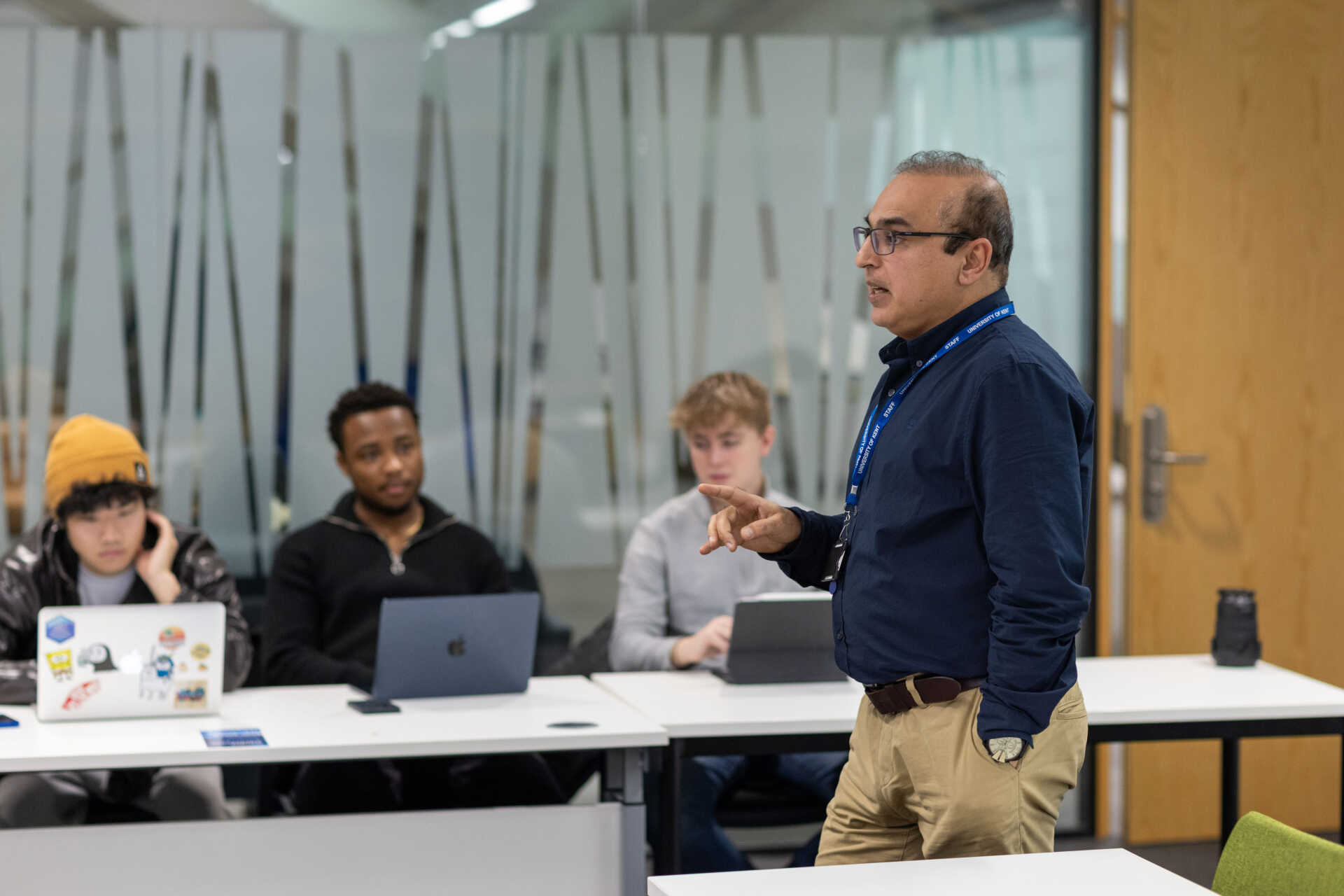Our world-class academics influence management strategies and practices world-wide through our outstanding research projects and direct involvements with industry. We address some of the biggest challenges of our time such as sustainability and responsible leadership to drive progress and create better business globally.
At its core, our research strategy is about delivering a sustainable tomorrow - a theme that Kent Business School embodies in all areas. We want to answer the big questions - How can innovation that enables sustainable long-term economic growth be created and supported? How can sustainable business practices improve environmental and social conditions? These are the problems we are here to solve.
We are global leaders advancing knowledge through constant collaboration and promotion of innovative research. We collaborate with local, national and international business, but we don't stop there. We have forged partnerships with other academic institutions and organisations such as the NHS. This wider focus allows us to advance towards our goal of a sustainable tomorrow.
Research Departments
Department of Accounting and Finance – The Department enjoys a significant international presence and reputation in several fields, including critical accounting, accounting history, sustainability accounting, corporate finance, banking and options pricing and performance.
Department for Analytics, Operations and Systems – The Department offers world class education and conducts internationally leading research in operational research, data analytics, operations management, information systems and sustainability.
Department of Marketing, Entrepreneurship and International Business – The Department brings together experts in the areas of three key management disciplines promoting interdisciplinary teaching and research as well as cross interdisciplinary knowledge exchange.
Department of Leadership and Management – The Department is a cross-disciplinary community dedicated to tackling complex business and societal challenges. Our teaching and innovative research encompasses the economic, psychological, social, political, and technological contexts in which organisations operate worldwide.
The Centre for Logistics and Sustainability Analytics
The Centre for Logistics and Sustainability Analytics – The Centre helps companies to address a wide range of transport, logistics, and supply chain problems with sustainability considerations.
Dynamic Publishing
Staff publish regularly and widely in journals, conference proceedings and books. Among others, they have recently contributed to: Journal of Corporate Finance, British Journal of Management, Organizations and Society, European Journal of Operational Research, Journal of Environmental Management, Financial Accountability & Management, Journal of Banking and Finance, Management Science, Transportation Science, International Journal of Operations and Production Management, British Journal of Management, Journal of Business Venturing, Entrepreneurship, Theory and Practice, British Journal of Management, Journal of International Business Studies, Journal of World Business, Research Policy, European Journal of Operational Research, European Journal of Marketing, International Journal of Research in Marketing, International Marketing Review.







